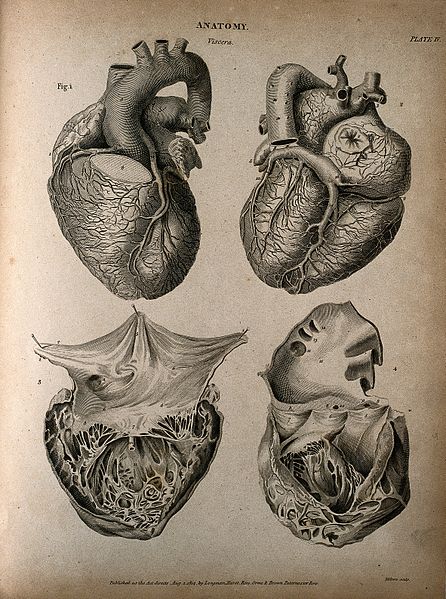 |
| Image Source: Wellcome Images |
Like, actually listen to your heart. New neuroscience research is revealing the mind-body connection that yogis and alternative medicine practitioners have been talking about for millennia: that your brain isn't something separate from your body, but something inside your body, and your relationship with your body affects your brain. The better you get at paying attention to your heart (and other parts of your body), the better your brain will operate.
Ireland is now officially the first country in the world to divest itself of fossil fuels! What does this mean? It means that they have gotten rid of all their stocks, bonds, and other fancy-money-ties to oil, gas, and coal. They will shed their 8 billion Euro sovereign wealth fund, which is a LOT of money to put on the line for their value of a fossil fuel-free nation. Go Ireland!
How Chimps Deal with Tyrants
When chimpanzees overthrow a tyrant, what do they do? Beat up, murder, and eat them, apparently. While this does sound like a BIT of an overreaction, I guess I'm just leaving this here to point out that we can at least try to stand up to a tyrant.
Save the Saiga
Saiga antelope populations are dwindling big time, and now a disease that previously has only affected goats has wiped out 10% of the population in Mongolia.
All Mouth and No Anus
A common ancestor to all vertebrates was a microscopic creature named Saccorhytus that was basically one giant mouth and... that's it. No bum.
How the Blind Cook
Ever wonder how blind people cook? Me neither, honestly. It never occurred to me until I saw this video and then went, "oh yeah, how DO they do that?" Well, here's how.
Postpartum Depression is Different from Other Mood Disorders
Apparently up until recently, nobody thought it would be a good idea to study pregnancy-related mood disorders as separate from other mood disorders. I'll just chalk that up to "typical" and then move on to say that new research has shown that postpartum depression is, indeed, neurologically different from other mood disorders. For example, people with anxiety and depression tend to have super-active amygdalae, but those with postpartum depression don't.
Shutting Down BS About Autism
Listen to some autistic people about what it's actually like to be autistic.
The Receptionist Delivers!
Sign up for my email newsletter for a weekly digest and BONUS CONTENT!
Apparently up until recently, nobody thought it would be a good idea to study pregnancy-related mood disorders as separate from other mood disorders. I'll just chalk that up to "typical" and then move on to say that new research has shown that postpartum depression is, indeed, neurologically different from other mood disorders. For example, people with anxiety and depression tend to have super-active amygdalae, but those with postpartum depression don't.
Shutting Down BS About Autism
Listen to some autistic people about what it's actually like to be autistic.
Sign up for my email newsletter for a weekly digest and BONUS CONTENT!

No comments:
Post a Comment